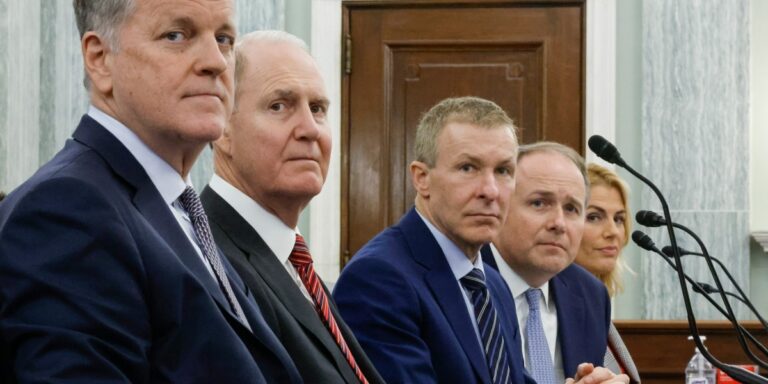
Many airlines are criticizing the U.S. Department of Transportation over its mandate that requires them to more clearly display so-called hidden “junk fees” and have filed a lawsuit challenging the new rule.
THE DOT mandate finalized April 24 would require travel agents and airlines to disclose in advance whether customers should be charged for reservation changes, flight cancellations or baggage screening fees. Airlines should also list any additional costs on the webpage where they display flight prices. Rule would help save airline customers more than $543 million annually, according to the DOT, and is expected to take effect July 1st.
The US airline lobbying group Airlines for America and airlines United, American, Delta, JetBlue, Alaska and Hawaiian have filed the suit. trial challenging the rule Friday before the 5th U.S. Circuit Court of Appeals. He argues that the rule “exceeds the authority of the department” and “is arbitrary, capricious, constitutes an abuse of discretion and is otherwise contrary to law.”
Airlines for America argued that the agency’s mandate would “greatly confuse consumers who will be inundated with information that will only serve to complicate the purchasing process,” the industry trade group said. Fortune in a report. “The DOT Auxiliary Rule is a bad solution in search of a problem.”
The DOT refutes Airlines for America’s claims, saying airline customers will be disappointed by its attempt to remove transparency from the flight booking process.
“We will vigorously defend our rule protecting people from hidden unwanted fees and ensuring that travelers can see the full price of a flight before purchasing a ticket,” the DOT said. Fortune in a report.
Changes in the works for years
U.S. Democrats have led the charge to thwart rising airfares for years, with Senators Edward J. Markey and Richard Blumenthal introducing the Law prohibiting airlines from charging ridiculous (FAIR) fees in 2016, then reintroduced it three years later, arguing that the fee was essentially airline profit at a time of falling fuel costs and success in the aviation industry.
President Joe Biden has tried since the start of his term to shore up rules on hidden airline fees, especially after those fees grew exponentially over the past two decades. By an information sheet Thanks to the FAIR Fees Act of 2019, the world’s 10 largest airlines raked in $35.2 billion in fees in 2018, up from just $1.2 billion in 2007. The issue has become even more urgent. during the pandemic, when travelers concerned about sharing cabin space became more sensitive to seat selection fees. The DOT introduced a rule in July 2021 that would require reimbursement for outdated online internet services and severely delayed baggage.
In addition to saving customers money, the Biden administration has argued that increased transparency would help increase competition in the aviation sector. Airlines for America says more competition is needed was useless and “strong competition in the U.S. airline industry has generated unprecedented levels of accessibility and affordability, benefiting the customer at every level.”
“My administration is also cracking down on airlines,” Biden said in September 2022. “You need to know the total cost of your ticket as soon as you do comparisons, to start with knowing where you are – which airline you are going to be flying with so you can choose the ticket that suits you best.”
Pressure mounts on airlines as 40 state attorneys general signed a letter to Congress the same month, demanding legislation to crack down on hidden costs.
“Americans are rightly frustrated that federal government agencies charged with overseeing airline consumer protections are unable or unwilling to hold the airline industry accountable and promptly investigate complaints.” , says the letter.


